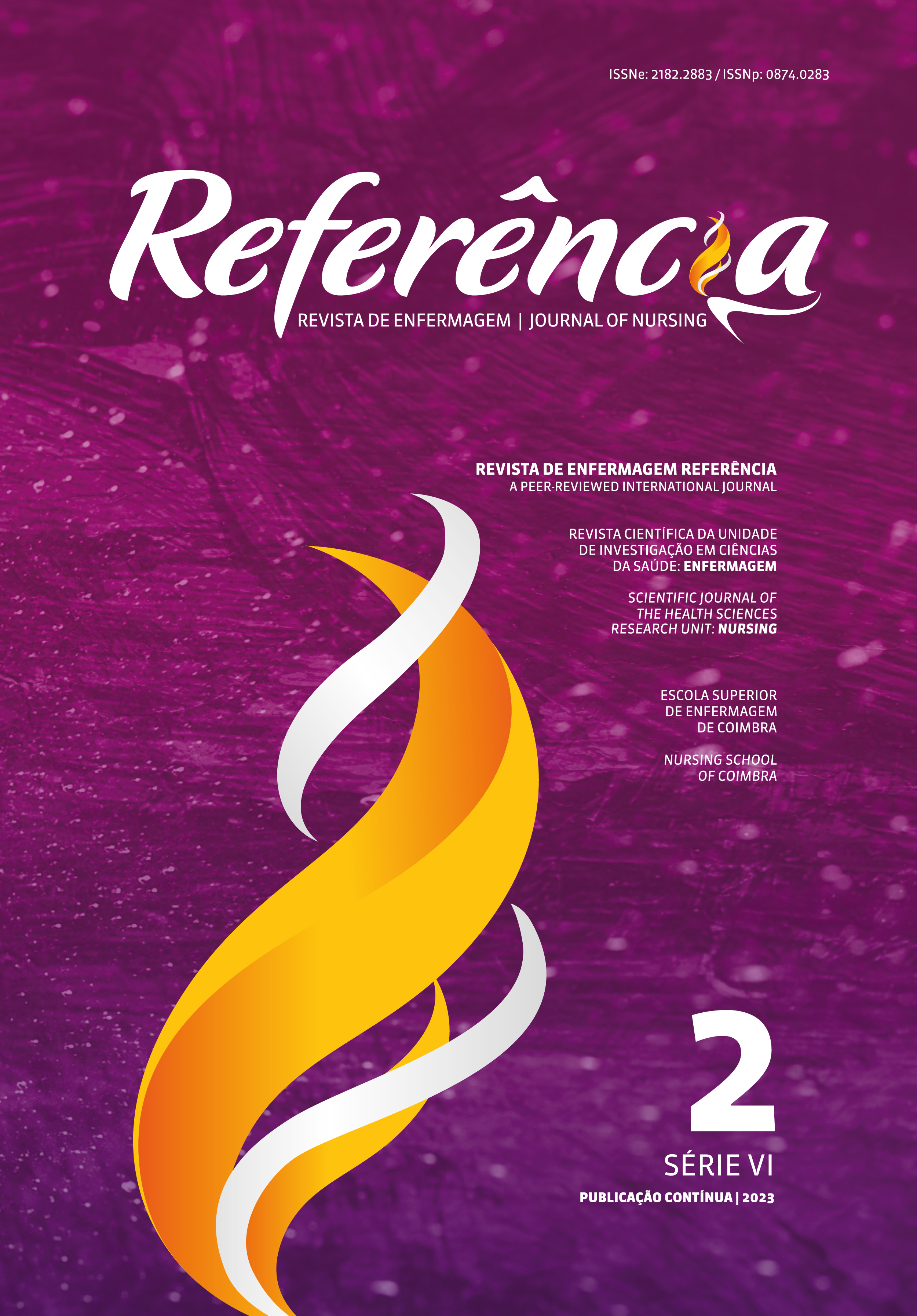Analysis of the incidence of signs and symptoms associated with occupational exposure to surgical smoke in residents
DOI:
https://doi.org/10.12707/RVI22082Keywords:
surgical smoke, signs and symptoms, occupational exposure, air pollutants, occupational, occupational healthAbstract
Background: Medical residents in operating rooms present signs and symptoms associated with occupational exposure to surgical smoke.
Objective: To determine the incidence and relative risk of developing signs and symptoms associatedwith surgical smoke exposure in medical residents.
Methodology: A cohort study was conducted with medical residents exposed and unexposed to surgical smoke. Data collection was conducted in two moments, over four months, using a questionnaire containing items on sociodemographic and occupational characteristics and surgical smoke-related signs and symptoms and protective measures.
Results: The most frequent signs and symptoms in those exposed compared to those unexposed to surgical smoke were foreign body sensation in the throat, burning sensation in the pharynx, irritation of other mucous membranes, and nasopharyngeal lesions. The use of protective eyewear was a protective factor for those exposed (p = 0.01).
Conclusion: Surgical smoke-related signs and symptoms are higher in medical residents exposed than in those unexposed. The relative risk of developing signs and symptoms is always higher for those exposed.
Downloads
References
Alcan, A. O., Giersbergen, M. Y., Tanil, V., Dinçarslan, G., Hepçivici, Z., Kurcan, Ç., Arikan, E., & Dere, T. (2017). Bir üniversite hastanesinde cerrahi duman riskleri ve koruyucu önlemlerin incelenmesi. Ege Üniversitesi Hemsirelik Fakültesi Dergisi, 33 (2), 27-35. https://dergipark.org.tr/en/pub/egehemsire/issue/32885/327169
Alp, E., Bijl, D., Bleichrodt, R. P., Hansson, B., & Voss, A. (2006). Surgical smoke and infection control. Journal of Hospital Infection, 62(1),1-5. https://doi.org/10.1016/j.jhin.2005.01.014
Asdornwised, U., Pipatkulchai, D., Damnin, S., Chinswang watanakul, V., Boonsripitayanon, M., & Tonklai, S. (2018). Recommended practices for the management of surgical smoke and bio-aerosols for perioperative nurses in Thailand. Journal of perioperative nursing, 31(1), 33-41. https://doi.org/10.26550/2209-1092.1022
Claudio, C. V., Ribeiro, R. P., Martins, J. T., Marziale, M. H., Solci, M. C., & Dalmas, J. C. (2017). Polycyclic aromatic hydrocarbons produced by electrocautery smoke and the use of personal protective equipment. Revista Latino-Americana de Enfermagem, 25, e2853. http://dx.doi.org/10.1590/1518-8345.1561.2853
Darski, C., Moreira, M. S., Capp, E., & Nienov, O. H. (2021). Estudos observacionais: Coorte, caso-controle e transversal. In E. Capp & O. H. Nienov (Orgs.), Epidemiologia aplicada básica (pp.191-236). Universidade Federal de Rio Grande do Sul. https://www.lume.ufrgs.br/bitstream/handle/10183/215459/001119979.pdf?seq
Georgesen, C., & Lipner, S. R. (2018). Surgical smoke: Risk assessment and mitigation strategies. Journal of the American of Dermatology, 79(4), 746-755. https://doi.org/10.1016/j.jaad.2018.06.003
Ilce, A., Yuzden, G. E., & Giersbergen, M. Y. (2016). The examination of problems experienced by nurses and doctors associated with exposure to surgical smoke and the necessary precautions. Journal of Clinical Nursing, 26(11-12), 1555-1561. https://doi.org/10.1111/jocn.13455
Karjalainen, M., Kontunen, A., Saari, S., Rönkkö, T., Lekkala, J., Roine, A., & Oksala, N. (2018). The characterization of surgical smoke from various tissues and its implications for occupational safety. Plos One, 13(4), 1-13. https://doi.org/10.1371/journal.pone.0195274
Limchantra, I. V., Fong, Y., & Melstrom, K. (2019). Surgical smoke exposure in operating room personnel: A review. Jama Surgery, 154(10), 960-967. https://doi.org/10.1001/jamasurg.2019.2515
Mittelstein, D., Deng, J., Kohan, R., Sadeghi, M., Maarek, J., & Zada, G. (2017). Novel technique of a multifunctional electrosurgical system for minimally invasive surgery. Journal of Neurosurgery, 126(3), 997-1002. https://doi.org/10.3171/2016.2.JNS15763
Navarro, M. C., González, R., Aldrete, M. G., & Carmona, D. E. (2016). Cambios en la mucosa nasal de los médicos por exposición al humo por electrocoagulación. Revista Facultad Nacional de Salud Pública, 34(2), 135-144. https://doi.org/10.17533/udea.rfnsp.v34n2a02
Navarro-Meza, M. C., González-Baltazar, R., Aldrete-Rodríguez, M. G., Carmona-Navarro, D. E., & López-Cardona, M. G. (2013). Síntomas respiratorios causados por el uso del electrocauterio en médicos en formación quirúrgica de un hospital de México. Revista Peruana de Medicina Experimental y Salud Publica, 30(1), 41-44. https://doi.org/10.1590/S1726-46342013000100008
Netto, C. M., Leachi, H. F., Stanganelli, N. C., Rocha, A. F., & Ribeiro, R. P. (2021). Uso da máscara N95 por trabalhadores de enfermagem expostos à fumaça cirúrgica. Ciência Cuidado e Saúde, 20, e55482. https://doi.org/10.4025/ciencuidsaude.v20i0.55482
Occupational Safety And Health Administration. (2015). Hospitals: Surgical suite - smoke plume. https://www.osha.gov/etools/hospitals/surgical-suite/smoke-plume
Ogg, M. J. (2017). Guideline for surgical smoke safety. Guidelines for Perioperative Practice, 477-505. http://fumees-chirurgicales.fr/wp-content/uploads/2017/01/Read-article-5.pdf
Okoshi, K., Kobayashi, K., Kinoshita, K., Tomizawa, Y., Hasegawa, S., & Sakai, Y. (2015). Health risks associated with exposure to surgical smoke for surgeons and operation room personnel. Surgery Today, 45(8), 957-965. https://doi.org/10.1007/s00595-014-1085-z
Swerdlow, B. N. (2020). Surgical smoke and the anesthesia provider. Journal of anesthesia, 34(4), 575–584. https://doi.org/10.1007/s00540-020-02775-x
Tan, E., & Russell, K. P. (2017). Surgical plume and its implications: A review of the risk and barriers to a safe work place. Journal of Perioperative Nursing, 30(4), 33-39. https://doi.org/10.26550/2209-1092.1019
Ünver, S., Topçu, S. Y., & Findik, Ü. Y. (2016). Surgical smoke, me and my circle. International Journal of Caring Sciences, 9(2), 697-703. http://www.internationaljournalofcaringsciences.org/docs/37_Unver_original_9_2.pdf
Usta, E., Aygin, D., Bozdemir, H., & Uçar, N. (2019). The effects of surgical smoke in operating rooms and precautions for protection. Archives of Health Science and Research, 6(1), 17-24. https://Periopdoi.org/10.17681/hsp.403579






















